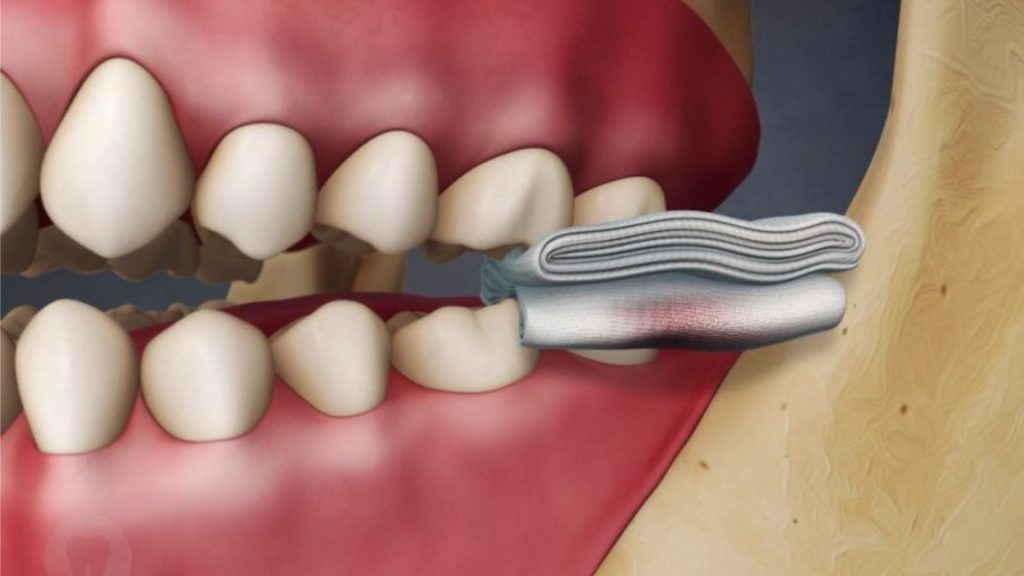Biting cheek from wisdom teeth is a frequent dental issue that many seek therapy for. Experiencing repeated cheek biting from wisdom teeth is a common dental issue faced by many individuals, particularly as these teeth emerge at the back of the mouth. If you’re feeling discomfort because your wisdom teeth keep cutting into your cheek or rubbing against the inside of your mouth, understanding the cause and available treatments can significantly ease your concerns. This comprehensive guide explores why wisdom teeth cause cheek biting, how to recognize symptoms, and effective prevention and treatment options available, especially if you’re experiencing these issues in Perth, WA.
Why Do Wisdom Teeth Cause Cheek Biting?


Wisdom teeth, often known as the third molars, typically erupt between the ages of 17 and 25. Due to limited space in the jaw, wisdom teeth frequently grow incorrectly—often sideways towards the cheek or at an angle causing them to press against the soft tissue.
When wisdom teeth grow sideways or are impacted, they might repeatedly rub against your cheek, resulting in irritation, sores, and persistent pain. This rubbing can become particularly troublesome during eating, speaking, or even resting.
Other reasons why wisdom teeth can lead to cheek biting include overcrowding, misalignment of teeth, and uneven eruption, causing the tooth to bite into the cheek tissue repeatedly.
Common Symptoms of Wisdom Teeth Cheek Biting
If your wisdom teeth are continuously biting or rubbing against your cheek, you may experience noticeable symptoms such as sharp pain, persistent irritation, redness, swelling, or ulcers on the inside of your cheeks. You might also find it difficult or painful to chew, speak clearly, or fully open your mouth.
Inflammation around the impacted tooth area and occasional bleeding due to biting injuries may also occur. If these symptoms persist, it’s essential to seek prompt dental care to prevent further complications.
Risks of Ignoring Wisdom Teeth Cheek Biting
Allowing wisdom teeth to continuously cut or bite into your cheek without intervention can lead to several oral health issues. Persistent irritation and wounds can lead to bacterial infections, increasing the risk of gum disease, tooth decay, and severe inflammation.
Additionally, untreated cheek biting might lead to cyst formation around the wisdom teeth, sinus issues if upper wisdom teeth are involved, and significant oral discomfort that affects your quality of life.
How To Stop Wisdom Tooth From Cutting Into Cheek ASAP?
When a wisdom tooth is continuously cutting into your cheek, quick action is crucial to alleviate discomfort and prevent further damage. First, rinse your mouth regularly with warm salt water to reduce inflammation and soothe irritated tissues. Over-the-counter oral gels or creams can also temporarily ease pain and reduce swelling. Switching to a soft food diet can help minimize further irritation, allowing your cheek to heal faster.
However, these immediate solutions are temporary, and the underlying issue—often misaligned or impacted wisdom teeth—should be addressed promptly. Scheduling an urgent dental appointment is essential. Your dentist can evaluate the tooth’s position, potentially providing orthodontic adjustments or extraction to permanently solve the issue. Prompt treatment ensures the problem does not worsen, preventing long-term oral health complications.
How to Prevent Wisdom Teeth from Cutting Your Cheek?
Preventing your wisdom teeth from rubbing against your cheek involves proactive dental care and regular consultations with your dentist. Regular check-ups enable early detection of misalignment and overcrowding, allowing your dentist to provide timely solutions.
Maintaining good oral hygiene is crucial. You should brush regularly, floss daily, and use antiseptic mouthwash to reduce bacteria and prevent infections. Also, avoid habits such as biting nails, chewing hard foods, or using teeth aggressively, as these can exacerbate cheek biting.
Effective Solutions for Wisdom Tooth Rubbing Against Cheek
If you’re suffering from your back teeth consistently biting your cheek, several practical solutions can provide relief:
Rinsing your mouth regularly with warm salt water can reduce inflammation and soothe irritation. Over-the-counter pain relief gels or creams, specifically formulated for oral use, can temporarily alleviate discomfort and inflammation.
For a lasting solution, dental interventions such as tooth extraction or orthodontic treatment to realign crowded or misaligned teeth are often recommended. These procedures can effectively stop teeth from biting into your cheek permanently.
What to Expect from Wisdom Teeth Removal?
If your dentist recommends wisdom teeth extraction due to ongoing cheek biting issues, the procedure is generally straightforward and highly effective. Removal eliminates the root cause of the discomfort, significantly improving oral health and comfort.
Post-surgery, mild swelling and temporary discomfort are common but manageable with prescribed medication, cold compresses, and gentle oral care.
When to See a Dentist?
If your wisdom teeth are continually cutting into or rubbing against your cheek, causing pain and inflammation, it’s critical to schedule a dental appointment promptly. Timely intervention prevents complications and ensures your oral health remains optimal.
At Spring Orchid Dental in Bassendean, WA, our experienced dental professionals specialise in wisdom teeth removal and oral health solutions. We accept all major health funds, including nib, HBF, DHS, and the Department of Veteran Affairs (DVA), making your dental treatment affordable and accessible.
Book Your Dental Consultation in Bassendean, Perth
If you’re experiencing continuous cheek biting due to wisdom teeth or are concerned about a wisdom tooth growing sideways towards your cheek, contact Spring Orchid Dental today. Our friendly and experienced team is ready to help you achieve comfort and optimal dental health.
Take the first step to relieve your pain—book your consultation with our skilled dentists in Bassendean, Perth, today!


FAQs
Is removing wisdom teeth the only solution for cheek biting?
No, extraction is not the only solution. In some cases, orthodontic treatments or dental adjustments might resolve cheek biting issues without removing the wisdom teeth. Your dentist can provide tailored advice based on your individual condition.
Can wisdom teeth safely be left in place?
It depends on their position and impact on surrounding teeth and tissues. If wisdom teeth are correctly aligned and causing no issues, they can remain. Regular dental check-ups are essential to monitor their status.
Is cheek biting a serious condition?
Cheek biting itself is typically not a serious medical condition but can lead to complications if left untreated, such as infections or gum disease. Seeking early professional dental care can prevent further oral health issues.





